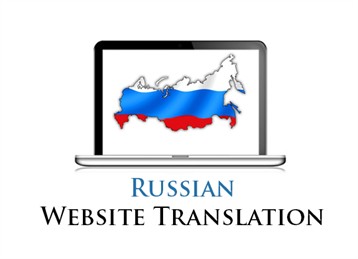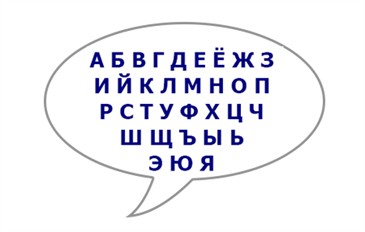Russian Website Translation Basics
Website localization involves more than just translating the content on a website. Web content must be truly localized for a specific locale (country, language, culture).
In practice the process of translation should ensure the language versions of a website are both linguistically- and culturally-correct. The ultimate goal is the new localized website will look and sound as if it was originally written in the target language.
How can this be achieved?

This is not a task to be taken lightly especially when it comes to localization of a website into Russian, a mysterious language where almost every word has a couple of synonyms, the meanings are conveyed with the help of prefixes and suffixes and the same word can be a preposition in one sentence and a noun in the other one.
Russian website localization involves translating and localizing your website content into the Russian language for your Russian speaking audience ensuring all content (text and graphics) is translated in an accurate and culturally correct manner.
A first thought that goes through many a marketing teams’ heads is to find the right Russian translation agency or Russian translators who know and understand the process of Russian website translation, send them the project and wait for the happy future to come. Simple, easy and cost-effective in an ideal world. But the question is how do you know if your Russian translators or agency knows what they are doing?
Below are a few steps that will help you navigate through a Russian website localization project successfully.
Russian glossary and terminology development
Glossary development is a first significant step to the successful localization of a website. The concept of the glossary as a simple list of terms with translation is wrong. A Glossary is a small-scale dictionary and all the rules that a lexicographer is guided by while composing a dictionary should be applied to glossary development no matter if it consists of twenty terms or twenty thousand terms. For this reason a linguist should review the terms after they have been extracted automatically from the source files. The Language Lead will advise which of the terms must be included in the glossary and which of them have only one meaning and can be excluded.
Russian translation, editing and proofreading
All Russian website translation projects require linguistic professionals who are Russian native-speakers, strong writers and have the expertise in specific subject areas. The Localization Team translates the content to ensure terminological consistency and grammatical accuracy throughout the website and in all translated materials. But their primary task is to convey the author’s ideas precisely in another language and to make sure the copywriter will get a high-quality translation that as a clay in skillful hands of the sculptor, will acquire new form and style.

Russian Copywriting
We all know what copywriting is but few can say what exactly a copywriter does. In the translation industry a Russian copywriter is a creative editor who is responsible for linguistic and cultural adaptation of the Russian translated content. The Russian copywriter is making different stylistic, grammatical and cultural changes such as replacing words with synonyms, re-writing sentences, changing grammar structures with only one goal – to meet client’s content creation and localization needs and contribute to the development of their business.
Russian Online Quality Assurance
Russian Online Quality Assurance (QA) is frequently considered to be an optional stage that can be easily skipped to save time and budget on a Russian website localization project. But the elimination of the Online QA step from the website localization process can be compared with the situation when a bride comes to a fashion boutique and buys a very expensive wedding-dress without even trying it on. The Localization Team is doing their best during the translation stage to provide the client with the high-quality product as well as the modern fashion designer while sewing dresses. But nobody can guarantee in both cases that the result will be perfect and further changes won’t be required. Russian Online QA is an excellent way to make sure the “new-born” translated content feels comfortable in its new environment.
Client review and approval
Client review and approval is a critical step in the website localization process when the client gets to review and provide comments on the newly translated website. It is important that a client choose the right internal team who will be responsible for review and approval of the localized content, making sure all the changes have been implemented correctly and the website can be published and launched successfully. A company’s chosen reviewers should work in close collaboration with the Project Manager and the Localization Team to ensure the website is ready to go alive.
I hope you found my blog helpful and devote some thought to these basic steps when you plan and start your next Russian website localization project.
